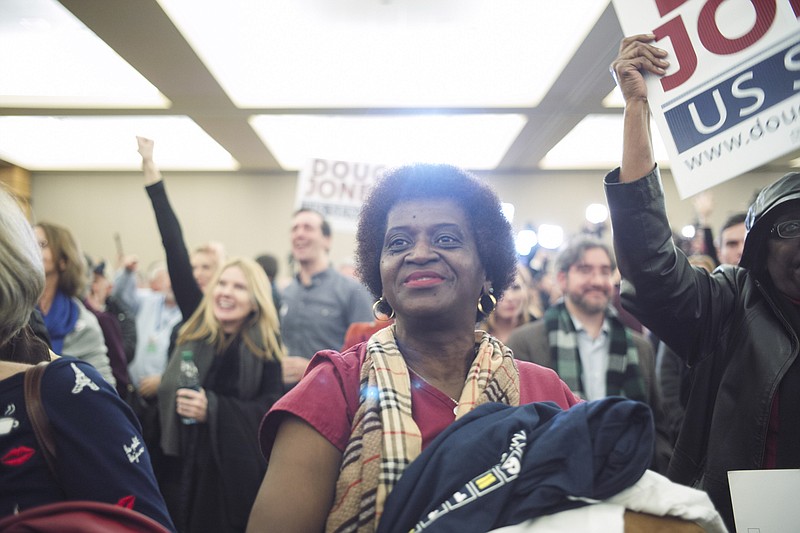We spoke earlier this week about Nick Saban's influence on the Alabama Senate race as a write-in candidate. The final numbers - there were almost 23,000 write-ins in an election decided by a smidge more than 20,000 - will be known soon.
The truly decisive number for those who study the polls was how overwhelming black women supported Democrat Doug Jones in his upset of Republican Roy Moore in a decidedly Republican state.
"Let me be clear: We won in Alabama and Virginia because #BlackWomen led us to victory," Democratic National Committee Chairman Tom Perez told The Associated Press after Tuesday's election. "Black women are the backbone of the Democratic Party, and we can't take that for granted. Period."
Polling numbers show 98 percent of the black women who voted - and voter turnout was high - voted for Jones.
Now comes another Alabama sports legend with a reward. Former Auburn University star and basketball Hall of Famer Charles Barkley pledged to give $1 million of his own money to black women in the state of Alabama looking for funds for start-up businesses.
Barkley made the pledge from his regular studio hosting role during NBA games and made sure he wanted the future entrepreneurs to know he was proud of them.
He did offer one caveat about his pledge to offer seed money.
"That does not mean hair salons and restaurants, black women."
Speaking of tax changes
It's fair to wonder if the ceiling on spending on college sports hovers around the next TV contract for football. I believe that, but a recent development magnifies the importance of TV dollars in the future.
The Florida State University athletic department sent a letter telling donors that under the new tax codes, the tax breaks for the gifts given to colleges could drop from 80 percent tax deductible to not deductible at all.
The verbiage the FSU letter uses is "Under the current proposed legislation, annual contributions required for season ticket purchases, including club seats and skyboxes, would no longer be deductible after December 31, 2017."
Maybe that's a scare tactic to lock boosters into a commitment for next year. And considering FSU just went through its first coaching search/turnover turmoil since before Jimmy Carter was sworn in, that could be the case.
The letter does mention the legislation could change, but the numbers in terms of football season-ticket revenue are kind of staggering for your power conferences. (And how that affects the overall gifts to colleges could also be an issue. There is no mention in the FSU letter about gifts to academia, only the required gifts to purchase season tickets.)
Here's the way the system has worked: Alumni and boosters are charged face value for the season tickets they purchase, but to get in position to buy the primo seats, you have to make sizable donations. The bigger the donation, the better access to the better sections of seats.
So, if State U. Fighting Fighters club-level tickets have a face value of $75 apiece and you buy four, that's $300 a game in tickets. For a regular eight-game season that's $2,400 in tickets.
Anyhoo, it's not uncommon for the donation for the right to buy those club level tickets to be $1,000 or more per seat. Skyboxes are much more pricey.
But let's just stay in the even $1K for the scholarship seats for easy math purposes. So that entire bill for four tickets to see your beloved Fighting Fighters would be $6,400, and that's just for four seats of the more than 85,000-seat stadium that likely includes tens of thousands of upper-echelon season-ticket holders.
The kicker has always been that, while you cannot write off the price of the tickets, you can write off $800 of each $1,000 per seat you have to pony up to get on the list.
If there are not any changes, the literature FSU is circulating states the deduction will be gone - and it could take who knows how many season-ticket holders with it.
Contact Jay Greeson at jgreeson@timesfreepress.com and 423-757-6343.
